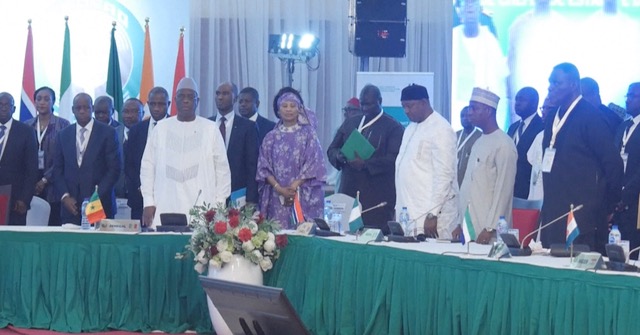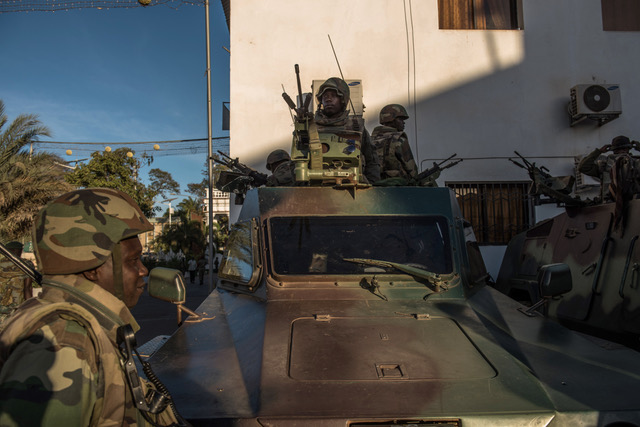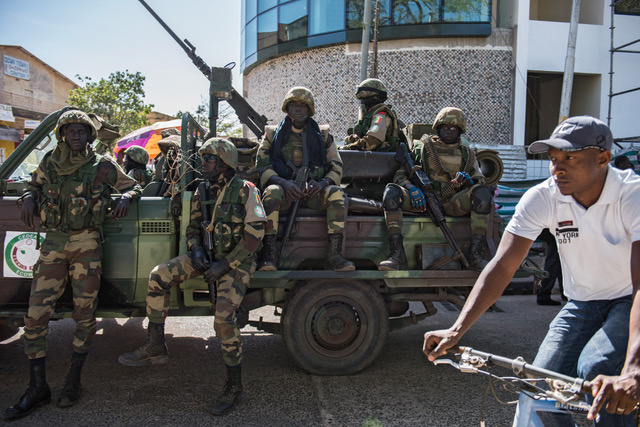The 15-nation Economic Community of West African States (ECOWAS) convened in Abuja, Nigeria, on Sunday 30th July, to discuss the current crisis and military coup which took place this week in Niger. The summit subsequently issued a threat to the military perpetrators of the coup, to immediately release the democratically elected President Mohamed Bazoum, who has been in captivity since last Wednesday and to ensure his reinstatement within seven days or face possible military intervention by combined ECOWAS military forces.

Members of the ECOWAS bloc also resolved to immediately impose financial and trade sanctions on Niger and to freeze the assets of all known perpetrators. The statement read:
‘In the event the authorities’ demands are not met within one week [ECOWAS will] take all measures necessary to restore constitutional order in the Republic of Niger. Such measures may include the use of force. For this effect, the chiefs of defence staff of ECOWAS are to meet immediately’
The writing was on the wall
In a pre-emption of the results of the ECOWAS summit, one of the leaders of the military coup, Amadou Abdramane, appeared on television and said:
‘The aim of this meeting is to approve a plan of aggression against Niger, in the form of an imminent military intervention in Niamey, in cooperation with African countries who are not members of the regional body and certain Western nations.’
The African Union which is a bloc consisting of 55 member states, also added its voice to the ECOWAS ultimatum, by issuing its own ultimatum on Friday to the military coup leaders in Niger, urging them to restore ‘constitutional authority’ within a period of two weeks. It stopped short of defining what sort of action – military or sanctions, it might take.
The African Union’s Peace and Security Council issued the communiqué, which stated that it:
‘demands the military personnel to immediately and unconditionally return to their barracks and restore constitutional authority, within a maximum period of fifteen (15) days’
The Council added its condemnation of the overthrow of the elected government and also expressed serious concern over the ‘alarming resurgence’ of military coups in Africa. The recent military coups in Mali and Burkino Faso will have been prominent in their considerations. It is also true that Niger itself has experienced four separate military coups since it achieved independence in 1960.
International community voices its support and imposes trade blocks and sanctions on Niger
The US, which already has over 1,000 troops stationed in Niger, has put its troops on standby as the US Secretary of State offered the ousted leader full support from Washington. A US state department spokesperson said that those who were detaining President Bazoum, were:
‘threatening years of successful cooperation and hundreds of millions of dollars of assistance’
France, the former colonial ruler of Niger and the European Union were quick to withdraw all security aid and financial aid to Niger, pending restoration of the constitutional authority.
This is not the first time ECOWAS has deployed the combined troops of neighbouring countries to restore democracy
This will not be the first time that the military forces at the disposal of ECOWAS members and neighbouring countries have come together to intervene in the affairs of troubled neighbours. In 2017, after Gambia’s former President Yahya Jammeh, refused to step down after he lost the election, ECOWAS launched ‘Operation Restore Democracy’ and sent in troops (at the request of the newly elected President Barrow) largely made up of soldiers from Nigeria, Ghana and Senegal. The operation was largely successful, with limited bloodshed, as Jammeh took the wise decision to step down and leave the country after troops entered Gambia’s capital city, Banjul. The newly elected President, Barrow was duly sworn in and took up office, although it was deemed necessary for several thousand ECOWAS troops to remain in situ for the following 6-month period to ensure order and to consolidate the presidency.

Overwhelming force
Post the overthrow earlier this week, Niger’s military leaders have pledged their full support to the coup, although their forces are only 5,000 strong. Nigeria alone is estimated to have a combined force of over 230,000 in active service – one of the largest combat services in Africa. Ghana has over 16,000 active troops and Senegal more than 17,000. If it comes to a military confrontation, it is likely that only reserve forces from neighbouring countries will be deployed, which could result in Niger’s case, with a prolonged and messy military confrontation.
Background to the ECOWAS intervention mechanism
The ECOWAS Military intervention mechanism adopted in 1999 for Conflict Prevention, Management, Resolution, Peace-Keeping, and Security (Protocol-Mechanism), established a nine-member state Mediation and Security Council (MSC). This council has the power to decide with majority rule upon military interventions in member states against the will of target countries, where human rights, the rule of law, or democratic principles had been violated. Up until the formation of this council, such a prerogative lay only with the United Nations Security Council.
According to the protocols, Article 25 dictates that the Mechanism can be applied ‘in the event of serious and massive violation of human rights and the rule of law’ or ‘in the event of an overthrow or attempted overthrow of a democratically elected government’.















